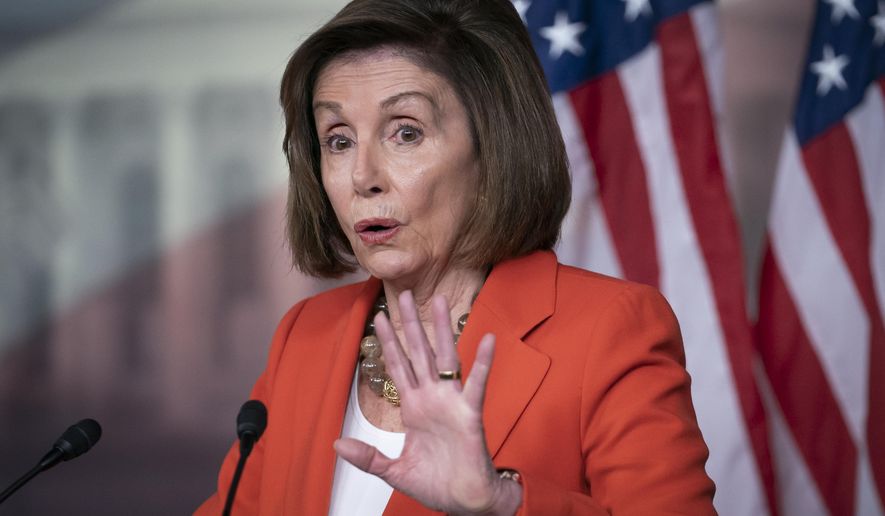House Speaker Nancy Pelosi is the target of a blatantly bogus advertising campaign underway on Facebook meant to draw attention to the social network’s policies for political ads.
“Breaking news,” begins a 33-second video ad that recently started being shown to Facebook users. “House Speaker Nancy Pelosi is giving away all her mansions to house thousands of homeless folks in her district.”
The spot was purchased by Shahid Buttar for Congress, the political campaign mounted by a self-described Democratic socialist hoping to unseat the incumbent in next year’s elections.
Mrs. Pelosi, California Democrat, has not announced plans to house the homeless in her private residences as alleged in the ads.
Facebook recently said the company will not subject political ads to the same fact-checking standards as other ad spots, prompting Mr. Buttar’s campaign to test the policy’s limits.
“Facebook allows politicians to lie in ads. Facebook then profits off of these ads. It’s never easier for politicians to create fake news on Facebook. Our Democracy is at stake,” reads a message shown at the end of the video ad.
SEE ALSO: Most voters support law ensuring all social media ads are factual: Poll
Representatives for Mrs. Pelosi’s office did not immediately returned messages requesting comment.
Facebook has faced criticism in recent weeks after the company announced that it would not require its third-party fact checkers to verify the contents of political ads paid to run on its platform, effectively allowing political candidates and campaigns to purchase spots containing unvetted and potentially bogus claims.
“Our policy is we do not fact check politicians’ speech, and the reason for that is that we believe that in a democracy it is important that people can see for themselves what politicians are saying,” Facebook CEO Mark Zuckerberg testified on Capitol Hill last week. “Political speech is some of the most scrutinized speech already in the world.”
Indeed, a Facebook spokesperson told The Washington Times later Friday that the anti-Pelosi ad is considered speech from a politician and therefore not eligible for third-party fact-checking.
“When a politician says something, we believe it’s important that people can see and judge it for themselves,” a Facebook spokesperson told The Times.
The results of a poll of nearly 2,000 registered voters conducted this week found that roughly three-out-of-four would support a hypothetical law that would ensure “all advertisements on social media platforms are factual, including political advertisements for candidates running for public office.”
• Andrew Blake can be reached at ablake@washingtontimes.com.




Please read our comment policy before commenting.